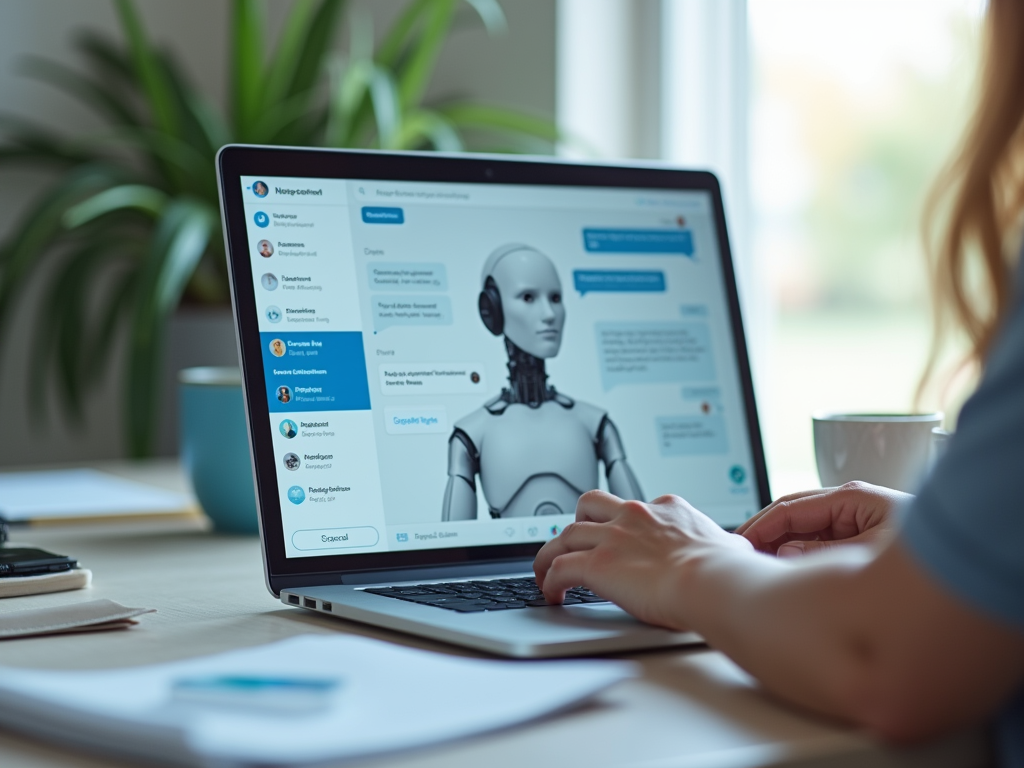In today’s competitive digital landscape, utilizing AI to automate marketing tasks can save time and enhance efficiency. By integrating AI into your marketing strategy, you can streamline processes, improve customer engagement, and make data-driven decisions. This article delves into various methodologies and tools that can transform your marketing efforts through automation, ultimately driving better results for your business.
The Role of AI in Marketing Automation

AI is revolutionizing the way businesses approach marketing automation, providing capabilities that go beyond traditional automation. It enables marketers to analyze vast amounts of data, predict outcomes, and personalize customer interactions effectively. Here are some key areas where AI plays a significant role:
- Data Analysis: AI algorithms can analyze customer behavior to identify trends and patterns.
- Email Marketing: AI can personalize email content based on individual preferences and behaviors.
- Social Media Management: Automate scheduling, publishing, and even responding to customer inquiries.
- Lead Scoring: Predictive analytics helps in scoring leads based on their likelihood to convert.
- Content Creation: Some AI tools can generate content tailored to target audiences.
Key AI Tools for Marketing Automation

There are numerous AI-powered tools available that can significantly enhance marketing automation strategies. These tools not only save time but also improve the accuracy of your marketing tasks. Here’s a list of some of the most effective AI tools:
- HubSpot: Offers a comprehensive suite of marketing tools integrating AI for personalized content and lead nurturing.
- Mailchimp: Known for email marketing, it uses AI to optimize send times and content for better engagement.
- Conversica: An AI-driven sales assistant that communicates with leads via email and follows up automatically.
- Drift: Uses AI chatbots for real-time customer service and lead engagement on websites.
- Predictive Analytics tools (like Salesforce Einstein): Help make data-driven decisions by predicting customer behavior and sales outcomes.
To effectively incorporate AI into your marketing efforts, it’s essential to create a structured approach. Your strategy should focus on aligning AI capabilities with clear marketing objectives. Here are crucial steps to consider:
- Identify Your Goals: Determine what aspects of your marketing you wish to automate, such as lead generation, customer service, or content creation.
- Choose the Right Tools: Based on the identified goals, select AI tools that align with your marketing requirements.
- Test and Optimize: Begin with pilot programs to test different tools and strategies, optimizing based on performance data.
- Integrate with Existing Systems: Ensure new AI tools can seamlessly integrate with your current marketing technology stack.
- Monitor Performance: Regularly assess the effectiveness of AI-driven efforts and refine strategies as necessary.
Benefits of Automating Marketing Tasks with AI
The advantages of automating marketing tasks with AI are significant and can lead to more streamlined processes and higher ROI. Here are the primary benefits:
- Increased Efficiency: Automating repetitive tasks allows marketers to focus on strategic initiatives that drive growth.
- Improved Accuracy: AI reduces human error in data analysis and execution, enhancing decision-making quality.
- Personalization: AI enables more personalized marketing approaches based on individual customer data.
- Cost-Effective: By automating tasks, businesses can save on labor costs associated with manual marketing processes.
- Better Customer Insight: Detailed data analysis results in a deeper understanding of customer needs and behaviors.
Conclusion
In conclusion, leveraging AI to automate marketing tasks is no longer just an option but a necessity for businesses aiming to thrive in the digital arena. By implementing AI-driven solutions, companies can enhance efficiency, increase accuracy, and foster deeper customer relationships. The journey to integrating AI may present challenges; however, the potential for improved marketing outcomes is well worth the effort. As the technology continues to evolve, staying informed about the latest AI tools and strategies will be essential for any marketer striving for success.
Frequently Asked Questions
1. How can AI improve my email marketing strategy?
AI can automate email personalization by analyzing customer behavior and preferences. This enables you to send tailored content that resonates better with your audience, thus improving engagement rates.
2. Are there any risks associated with marketing automation using AI?
Yes, potential risks include over-automation that might lead to losing the human touch in customer interactions and reliance on data accuracy. It’s essential to monitor AI-driven efforts closely and maintain a balance with human involvement.
3. What type of businesses can benefit from AI marketing automation?
Businesses of all sizes and industries can benefit. However, companies with large customer bases or extensive data streams typically see the most significant advantages in efficiency and insights.
4. How do I know if my marketing automation efforts are effective?
Monitoring key performance indicators (KPIs) such as conversion rates, engagement metrics, and ROI of marketing campaigns will help assess the effectiveness of your automation strategies.
5. Can I automate social media marketing using AI?
Absolutely! AI tools can schedule posts, analyze audience engagement, and even generate content ideas, allowing you to optimize your social media marketing efforts effectively.
